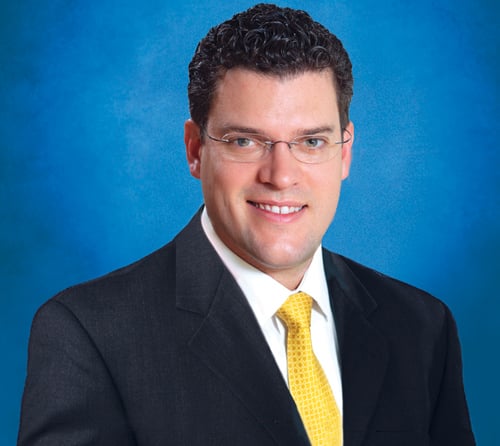The sovereign-debt crisis in Europe has opened the door for contrarian investing in global fixed income, according to Michael Hasenstab, co-director of fixed income at the Franklin Templeton Fixed Income Group and manager of the $30 billion Templeton Global Bond Fund Ticker:(TPINX).
“Sovereign credit risk is not uniform [around the globe], so in times of short-term panic, you can be a contrarian investor,” he said.
During May and June, for example, when sovereign-debt problems in Greece fueled a flight to quality and away from non-dollar-denominated credit, Mr. Hasenstab took the opportunity to increase his exposure to Asia.
“On a fundamental basis, Asia has stronger growth, higher interest rates and not the kind of indebtedness problems we're seeing in other parts of the world,” he said. “A lot of the problems facing the U.S. and Europe are not a problem in Asia.”
(See Mr. Hasenstab's second half outlook, along with five other influential portfolio managers.)
The fund is currently 40% allocated to Asia (excluding Japan), 15% allocated parts of Europe that are not on the euro currency, and on the other end of the portfolio, just 2% allocated to the U.S. credit market, mostly in the form of municipal bonds.
The fund has zero exposure to Portugal, Italy, Ireland, Greece or Spain, the debt-plagued Mediterranean countries that have been collectively dubbed the PIIGS.
The portfolio is naturally globally diversified because a lot of emerging markets are now in better shape than some developed countries, which should make the fund especially appealing to investors overly concentrated in U.S. fixed income.
For example, Mr. Hasenstab favors Russia, a country with a 10% debt-to-gross-domestic-product ratio, which compares with an 86% debt-to-GDP ratio in the United States.
“Ten years ago, we used to be concerned about [credit quality] in the emerging markets, but now it's the developed markets that everyone is worried about,” he said.
In terms of the United States, Mr. Hasenstab said he doesn't see a real threat of insolvency hitting home, despite a deficit now at $1 trillion and growing.
But he does believe the U.S. debt-to-GDP ratio will reach 100% within the next few years, which will force yields higher on Treasury bonds.
“We don't want to be exposed to U.S. Treasuries at this point,” he said.
This is the kind of strategy and exposure investors can expect from Mr. Hasenstab and his worldwide team of 40 contributing research analysts.
The fund invests across three main categories of global government fixed income: currencies, interest rates and sovereign credit.
While interest rates are holding near zero in the U.S., he is finding opportunities for rate exposure in places such as Brazil, Mexico and Indonesia, where long-term rates are higher, making the local Treasury bonds more attractive.
On the currency side, he has a positive outlook for the dollar versus the yen and the euro, “but I'm negative on the dollar versus almost everything else.”
Portfolio Manager Perspectives are regular interviews with some of the most respected and influential fund managers in the investment industry. For more information, please visit InvestmentNews.com/pmperspectives.







